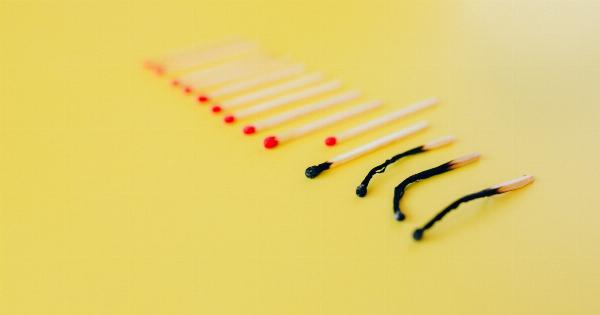Attention Deficit Syndrome (ADS), also known as Attention Deficit Hyperactivity Disorder (ADHD), is a neurodevelopmental disorder characterized by inattention, hyperactivity, and impulsivity.
Thyroid dysfunction is a condition that affects the normal functioning of the thyroid gland. Both ADS and thyroid dysfunction are common disorders that affect millions of people worldwide. Some studies suggest a link between thyroid dysfunction and ADS. In this article, we will explore this link in detail.
What is Thyroid Dysfunction?
The thyroid gland is a small butterfly-shaped gland located in the neck. It produces hormones that regulate metabolism, growth, and development in the body. When the thyroid gland does not produce enough hormones, the condition is called hypothyroidism.
On the other hand, when the thyroid gland produces too many hormones, the condition is called hyperthyroidism.
Hypothyroidism can cause symptoms such as fatigue, weight gain, constipation, depression, and cold intolerance. Hyperthyroidism can cause symptoms such as weight loss, increased appetite, anxiety, sweating, and tremors.
Both hypothyroidism and hyperthyroidism can affect the overall functioning of the body.
What is Attention Deficit Syndrome?
ADHD is a neurodevelopmental disorder that affects both children and adults. The disorder is characterized by symptoms such as inattention, hyperactivity, and impulsivity.
People with ADHD may have trouble focusing on tasks, staying organized, and completing tasks on time. They may also have trouble sitting still, controlling their behavior, and exhibiting patience. ADHD can affect daily activities and may cause problems at school, work, or in relationships.
Link between Thyroid Dysfunction and ADHD
Recent studies suggest a link between thyroid dysfunction and ADHD. A study published in the Journal of Child Neurology found that children with ADHD were more likely to have thyroid problems than children without ADHD.
Another study published in the Journal of Attention Disorders found that adults with ADHD had lower levels of thyroid hormones than adults without ADHD.
Thyroid hormones play a critical role in brain development and function.
Thyroid hormones are essential for the growth and maturation of neurons, and they are involved in the regulation of neurotransmitters, which are chemicals released by neurons that transmit signals between neurons. Thyroid hormones also affect the development and functioning of the prefrontal cortex, a brain region that is important for attention, decision-making, and working memory.
It is not yet clear how thyroid dysfunction affects ADHD, but some researchers believe that the link may be due to the effects of thyroid hormones on the brain.
Another possibility is that the link may be due to shared genetic factors that contribute to both conditions.
Diagnosis and Treatment
If you suspect that you or your child has ADHD or thyroid dysfunction, it is essential to seek medical attention. A healthcare professional can perform a physical exam, review symptoms, and conduct laboratory tests to diagnose the condition.
Treatment for ADHD typically includes prescription medications, behavioral therapy, and lifestyle changes. Medications such as stimulants can help improve focus and reduce hyperactivity and impulsivity.
Behavioral therapy can help individuals with ADHD learn coping skills and strategies to manage their symptoms. Lifestyle changes such as regular exercise, a healthy diet, and good sleep habits can also improve ADHD symptoms.
Treatment for thyroid dysfunction may include prescription medications, radiation therapy, surgery, or lifestyle changes. Medications such as levothyroxine can help replace missing thyroid hormones in individuals with hypothyroidism.
Radioactive iodine therapy may help reduce the production of thyroid hormones in individuals with hyperthyroidism. Surgery may be necessary in some cases to remove part or all of the thyroid gland.
Conclusion
While the exact link between thyroid dysfunction and ADHD is not yet understood, current research suggests that there may be a relationship between the two conditions.
It is important to seek medical attention if you or your child is experiencing symptoms of ADHD or thyroid dysfunction. Early diagnosis and treatment can help manage symptoms and improve overall health and well-being.






























